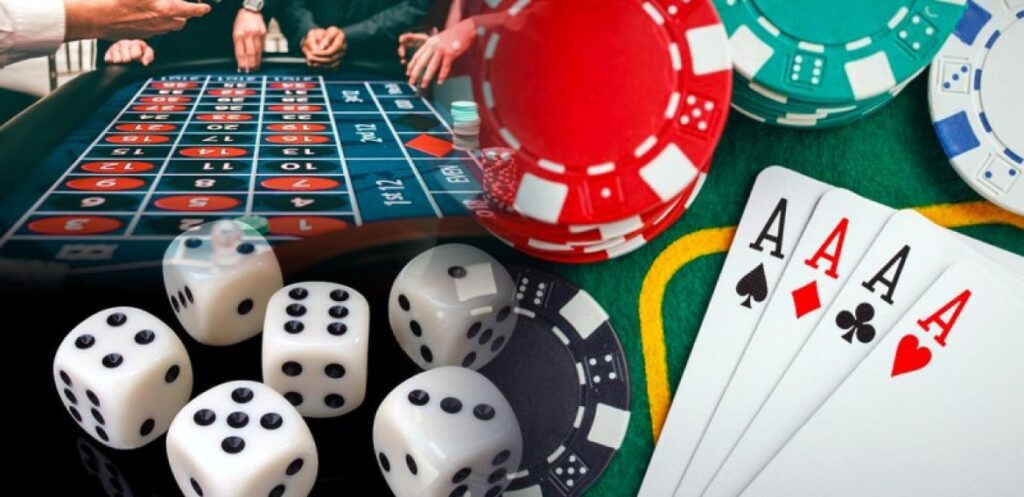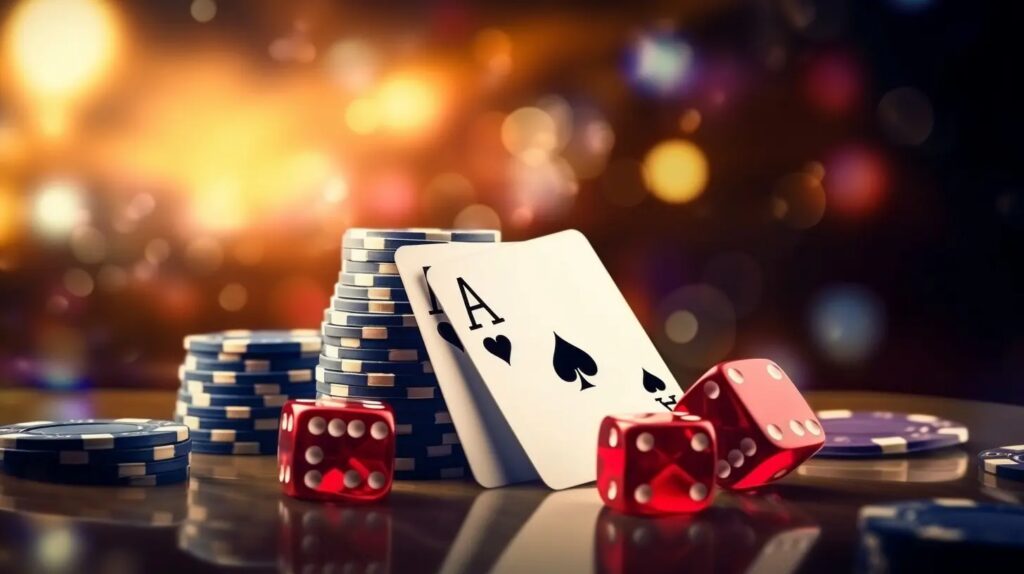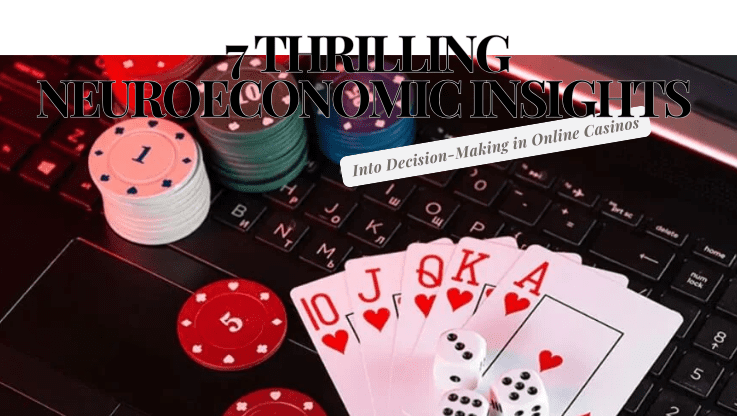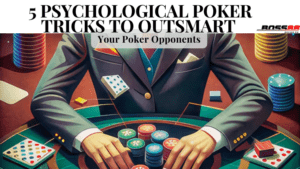Online casinos have revolutionized gambling, offering players exciting games and convenience at their fingertips. Behind the scenes, decision-making in online casinos isn’t just a matter of luck—it’s heavily influenced by human psychology and neuroeconomics. By exploring how the brain works during online gambling, players and operators alike can better understand the forces at play.

Let’s dive into 7 neuroeconomic insights that reveal how decision-making operates in the dynamic world of online casinos.
The Allure of Near-Misses
Neuroeconomic Insights: Near-misses, such as almost hitting the jackpot on a slot machine, trigger a unique response in the brain’s reward system. Neuroeconomic research reveals that:
- Dopamine Release: Near-misses stimulate dopamine, the “feel-good” neurotransmitter, much like an actual win.
- Increased Play Time: Players often feel encouraged to keep playing, believing they are “close” to winning.
In online casinos, near-misses are a psychological tool to keep players engaged. Slot machines and online games often feature animations or sounds that mimic success, further heightening this effect.
Risk vs. Reward: The Role of the Prefrontal Cortex
Neuroeconomic Insights: The prefrontal cortex governs rational decision-making, weighing risks and rewards. In online casinos:
- Immediate Gratification: Fast gameplay can overwhelm the prefrontal cortex, leading players to favor immediate rewards over long-term strategy.
- Impulse Decisions: Features like autoplay and quick spins often capitalize on this neural bias, pushing players toward faster, less calculated choices.
Understanding this mechanism can help players pause and consider their options carefully.
The Power of Loss Aversion
Neuroeconomic Insights: Loss aversion, a cornerstone of behavioral economics, is the tendency to avoid losses rather than seek equivalent gains. In online casinos:
- Chasing Losses: Players might continue gambling to “recover” lost money, even when the odds are against them.
- Casino Strategies: Operators use loss aversion by offering bonuses that feel like recovering a prior loss, such as cashback promotions.
To counteract this, players should set strict limits and recognize that past losses don’t predict future outcomes.
Impact of Sensory Stimulation on Decisions
Neuroeconomic Insights: Online casinos rely on visual and auditory cues to heighten excitement and influence decisions:
- Bright Colors and Sounds: Winning sounds and flashing visuals stimulate the brain’s reward system, increasing the sense of achievement.
- Game Design: Slot games often use immersive graphics and themes to keep players hooked.

While these sensory triggers enhance entertainment, they can also cloud judgment. Awareness of their impact helps players make more informed decisions.
Anchoring Bias in Betting Patterns
Neuroeconomic Insights: Anchoring bias occurs when initial information influences future decisions. In online casinos:
- Betting Decisions: Players often base bets on the initial stake, even if it doesn’t align with their budget.
- Promotions: Bonuses like “Double your first deposit” set a psychological anchor, encouraging higher stakes.
To avoid anchoring traps, players should create a clear budget and stick to it, regardless of initial incentives.
The Role of Oxytocin in Social Casino Games
Neuroeconomic Insights: Oxytocin, known as the “bonding hormone,” plays a significant role in social interactions, even in virtual environments:
- Social Gambling: Multiplayer games and live dealer games foster a sense of community, increasing oxytocin release.
- Trust and Risk: Players may feel more trusting and willing to take risks in games with a social component.
While this enhances the social aspect of online casinos, players should stay mindful of their spending during these emotionally driven sessions.
The Gambler’s Fallacy and Misinterpreting Randomness
Neuroeconomic Insights: The gambler’s fallacy is a cognitive bias where players believe that past outcomes influence future events. For example:
- Slot Mechanics: Players might think a machine is “due” for a win after a series of losses, even though outcomes are random.
- Roulette Strategies: Believing a number will hit because it hasn’t appeared in a while can lead to risky bets.
Recognizing randomness is crucial for making rational decisions in online gambling.

Final Thoughts: Balancing Entertainment and Responsibility
Understanding these neuroeconomic insights helps players enjoy online casinos more responsibly. The interplay between psychology, brain chemistry, and casino design creates a thrilling experience, but it’s essential to balance entertainment with mindful decision-making.
By setting limits, taking breaks, and staying informed, players can make better choices while embracing the excitement of online casinos. Remember, the ultimate goal is to have fun—responsibly.







































